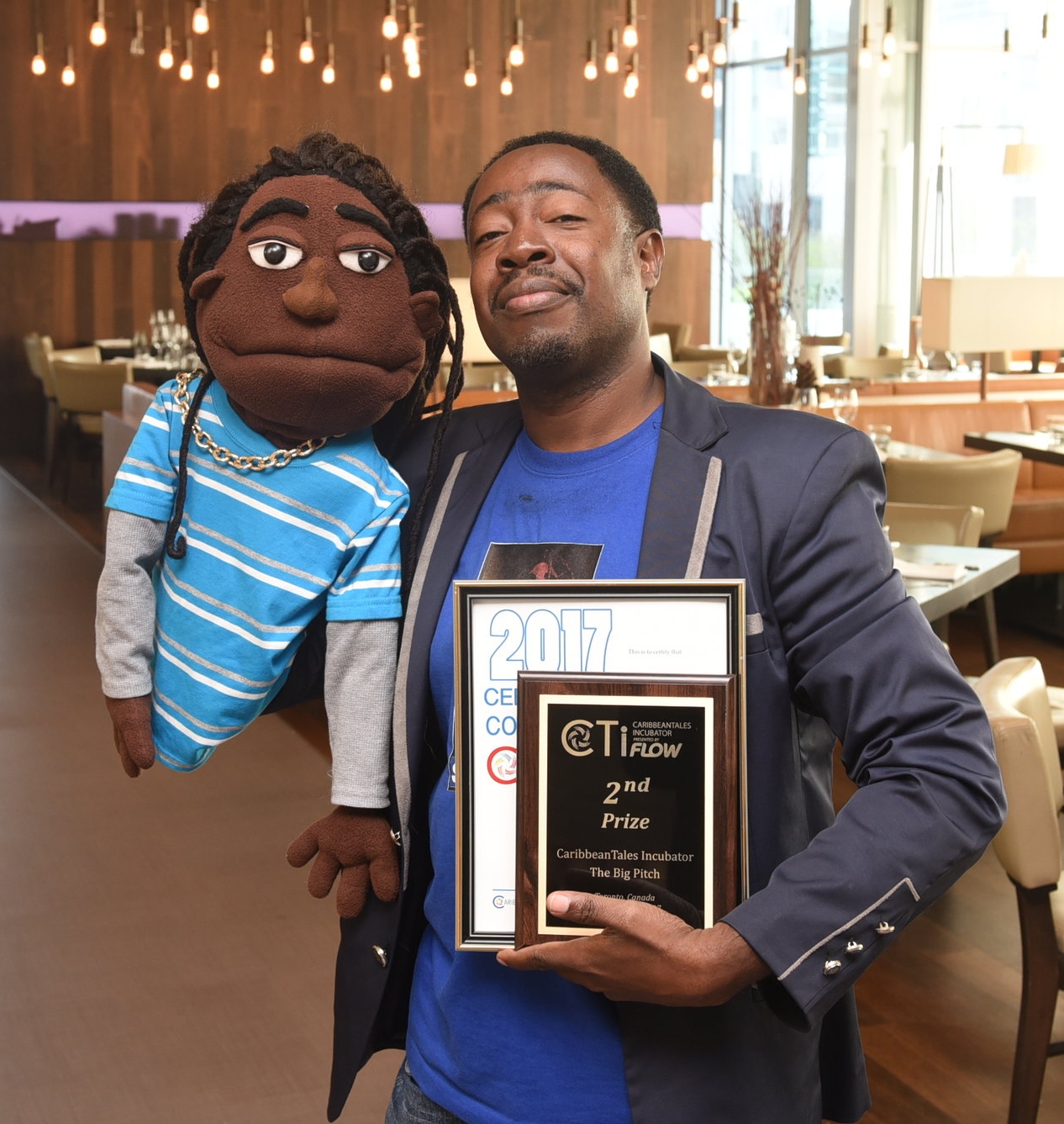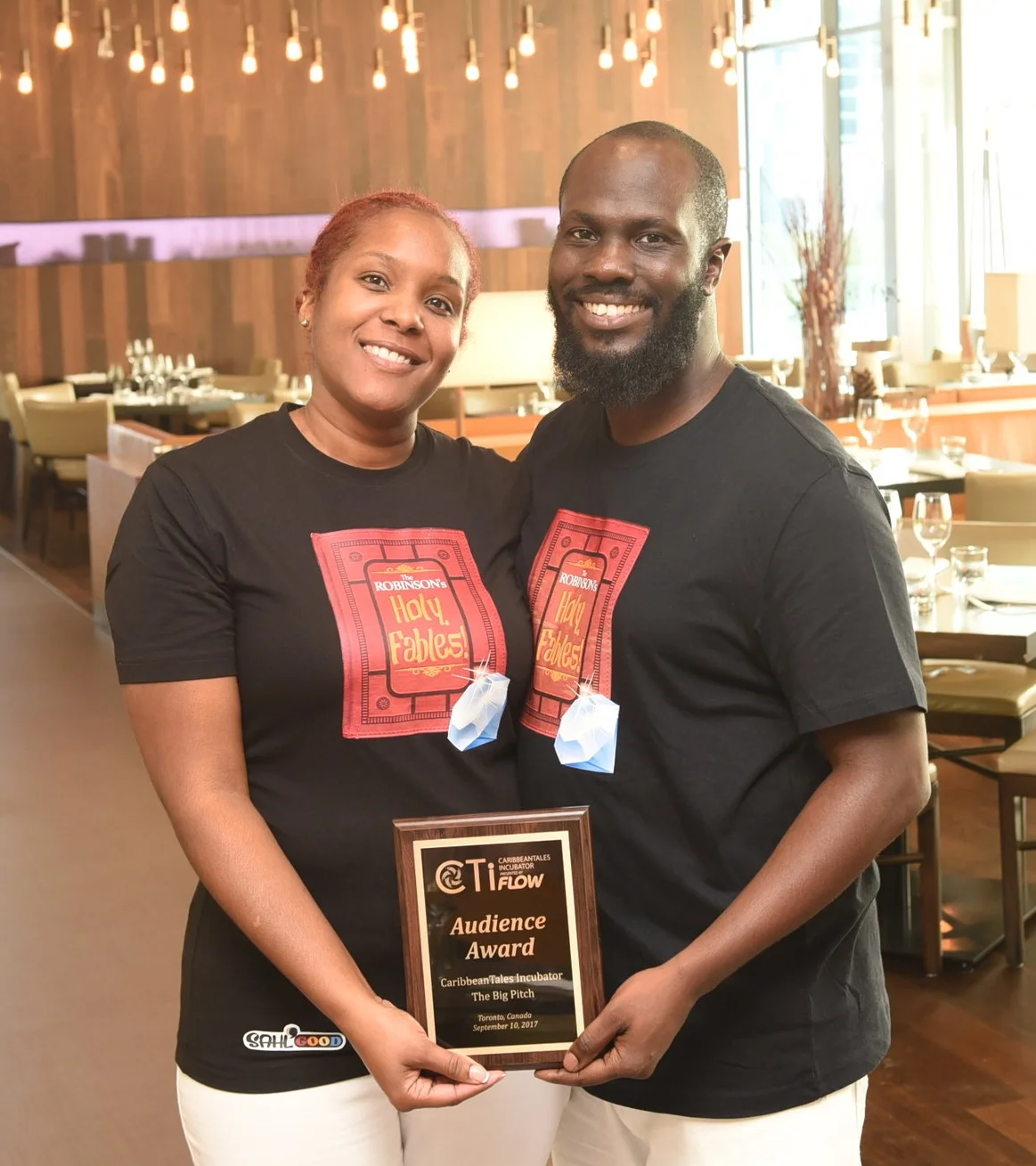Filmmakers in incubator make big pitch
September 21, 2017
Home alone in his San Fernando apartment on a rainy and dreary day 17 years ago, Trinidadian Roger Alexis was bored beyond belief.
With nothing of significance on television to capture his attention, he picked up a sock, stuck two holes in it to look like eyes and recorded a short video with his camcorder.
Done for personal entertainment, Alexis was surprised with the attention his instinctive creation drew from family and friends.
“After I showed it to a few of them, they started to share it,” he recounted. “That was before YouTube. When one person became very upset because I told him I had loaned it out, I started to think I was on to something. Maybe, I could be a filmmaker.”
Alexis purchased a few puppets, started producing short films and entered the Trinidad & Tobago Film Festival. With grants from the Trinidad & Tobago National Film Company, he created, wrote and directed a full-length series based on his popular ‘I’m Santana’ puppet series of shorts.
A spin-off of ‘I’m Santana’, Alexis produced ‘Lexo Street’ that is a comedic series that provides audiences with intimate access into the scandalous lives of Santana and friends who live on Lexo Street where the issues and challenges of the average Caribbean person through laughter and satire surface.
Selected for this year’s Caribbean Tales Film Festival (CTFF) incubator in Toronto, he was awarded the jury second prize at the Big Pitch breakfast at the Toronto International Film Festival (TIFF) Bell Lightbox.
In its eighth year, the incubator offers filmmakers from Canada, the Caribbean and other parts of the world the opportunity to pitch to working entertainment professionals, including acquisition & distribution executives, producers and directors who are actively seeking new content.
After six to eight weeks of online training, the participants come to Toronto for a week of intensive workshops that culminate with a three-minute pitch to industry professionals.
On his first visit to Canada, Alexis said the incubator was a once-in-a-lifetime opportunity.
“I learnt how to write a script that can be really appealing in the competitive world of film and also how to effectively analyze my characters,” he said. “Then there was the network component that was so invaluable. I met a South African woman who wants to me to bring my series to her country.”
Alexis said he knew what he wanted to do at an early age.
“Success where I came from meant getting a job in the oilfield,” he said. “I wasn’t cut out for that or working in an office sitting at a desk. I knew I wanted to be in film, but I just didn’t know how to get into it.”
A former CNN TV 6 cameraman, Alexis started Lexo TV in 2010 and graduated with a film production degree from the University of the West Indies.
He hopes his series will become just as big as American animated sitcoms ‘Family Guy’ or ‘The Simpsons’.
“Dreaming big is what got me here and that is what is going to take me forward,” said Alexis.
‘Inframundo’, an unlikely zombie thriller series about love and monsters produced by Dominican Republic film director Leticia Tonos clinched the first prize while Jamaican-born Karen Mafundikwa’s ‘TRANScribe’, a unique 13-part travel documentary series that visually explores and celebrates Caribbean and Caribbean diaspora writers through their connections to the magical, mystical and tragic places within the region that are buried within each of their souls inspiring their distinct storytelling, captured the third prize.
Tonos said the mentors were extremely inspirational.
“The energy they give us was tremendous,” she said. “They displayed so much love for our projects and the feedback from them was so precious.”
Canadian husband and wife Sahle and Claudia Robinson were the recipients of the Alex Tapscott and Amy Welsman Audience Award for their series, ‘Holy Fables! And the Diamond Dad’, which is an 11-minute 13-episode collection of animated fairy tales, fantasies and parables bookended in a masterpiece theatre-type format featuring a recurring live-action family that uses the fables to teach their children how to make wise decisions and deal with the consequences of their actions.
Sahle and Claudia Robinson (Photo by Ron Fanfair)
Married for 13 years, the couple has four children ranging in age from seven to 15.
“My wife and I have been telling stories to our kids for the last few years,” said Sahle Robinson who is a storybook illustrator at Rubicon Publishing Ltd. “Since I am a storyboard artist, I want to bring those stories visually that she comes up with. The stories are crazy and they go from left to right with not really good endings. They are like real life fantasy. Because of our faith, we thought it was necessary to for them to project our Christian values also.”
The Robinsons are grateful that Caribbean Tales Incubator (CTI) manager/facilitator Nicole Brooks encouraged them to apply.
“This experience was like no other,” Claudia Robinson said. “We were able to learn so much during this process.”
Since 2014, the CTI has focussed on facilitating the development of long-running sustainable television and web series content. Last year, a production support program was launched to lead projects from pitch to production.
CTI is partnering with FLOW – the festival’s lead sponsor -- this year to provide funding and support for selected projects to be produced as pilots.
“The filmmakers in the Caribbean and in the Caribbean diaspora are producing very interesting content,” said Dr. Keith Nurse, the Caribbean Tales Worldwide Distribution founding director and board chair. “Our incubator has grown rapidly in the last few years in part because now we have some funding from FLOW. They funded some of the participants to come to Toronto and they are funding three pilots to the tune of US$50,000 which is huge by any standard.”
Nurse, who is on the Trinidad & Tobago’s Office of the Prime Minister economic development advisory board, said FLOW is launching a channel next year dedicated to Caribbean and Caribbean diaspora-themed programming.
“That is the reason we are investing in building serial content in our incubator process,” he added. “Most of the participants in our incubator program in the last three years are those that have been making serial content as opposed to one-off documentaries or feature films. There is a huge hunger for that kind of content.”







